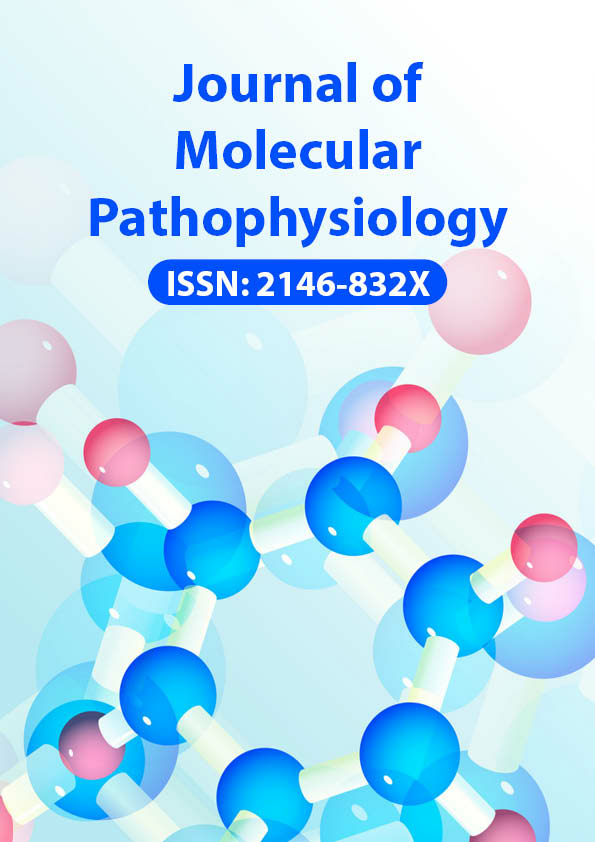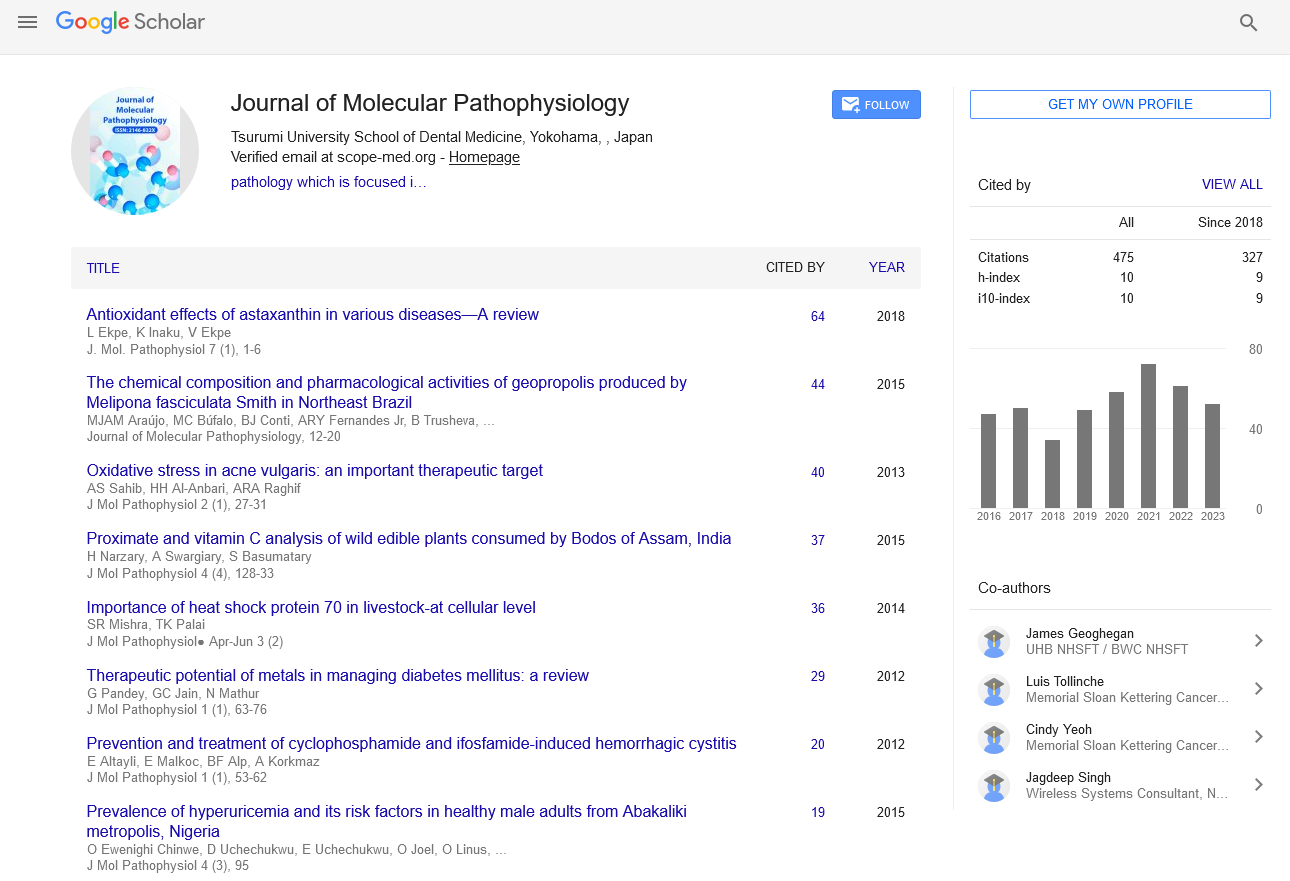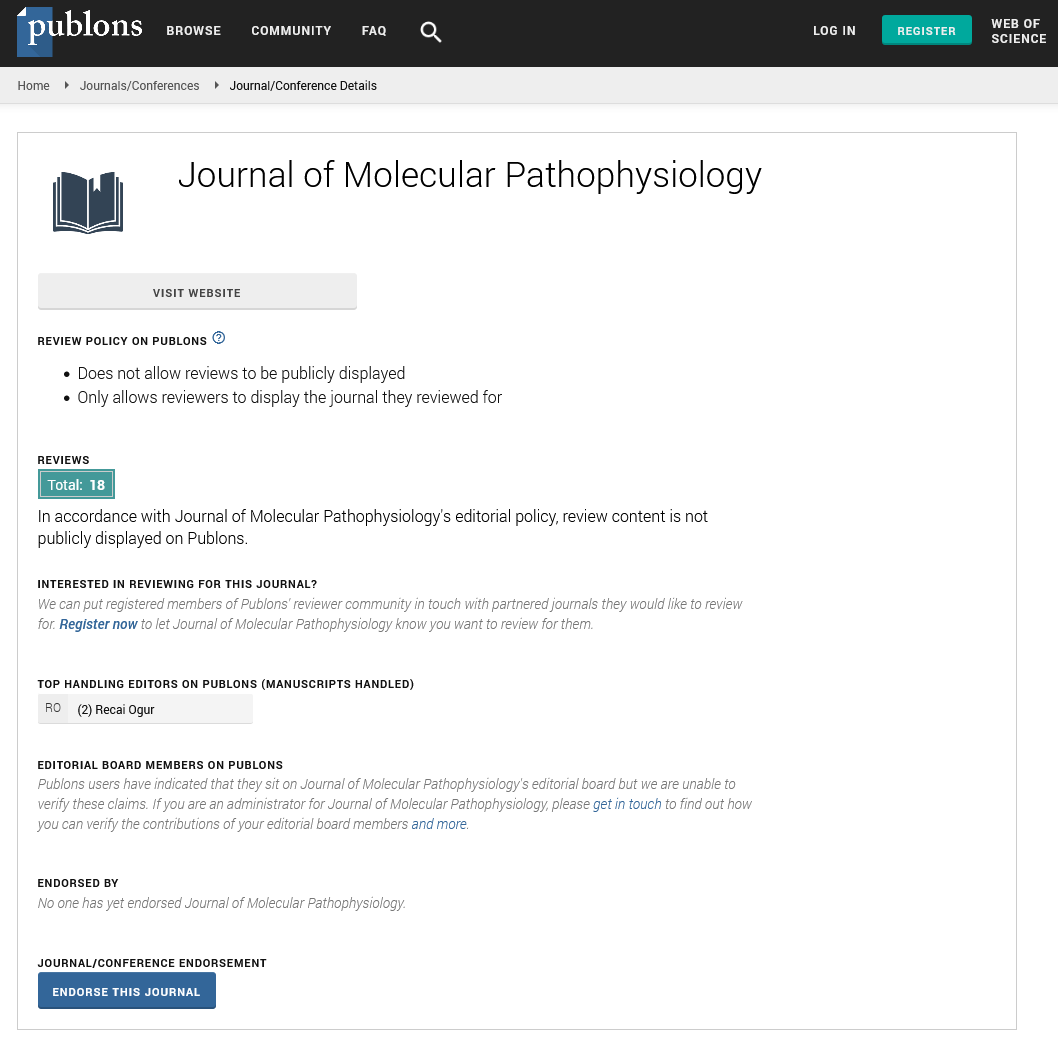Opinion Article - Journal of Molecular Pathophysiology (2024)
Genetic Mutations and Endocrine Disorders: Insights into Insulin Resistance and Cortisol Synthesis Abnormalities
Laura Fabbri*Laura Fabbri, Department of Endocrinology, University of Cape Town, Cape Town, South Africa, Email: fabbrilau66@yahoo.com
Received: 24-Jun-2024, Manuscript No. JMOLPAT-24-144393; Editor assigned: 27-Jun-2024, Pre QC No. JMOLPAT-24-144393 (PQ); Reviewed: 12-Jul-2024, QC No. JMOLPAT-24-144393; Revised: 19-Jul-2024, Manuscript No. JMOLPAT-24-144393 (R); Published: 26-Jul-2024
About the Study
Endocrine disorders result from the dysfunction of the glands that secrete hormones, which regulate numerous body functions. The pathophysiology of these disorders involves complex interactions between hormonal imbalances, cellular responses. Endocrine disorders can be classified into two categories, those caused by hormone excess and those resulting from hormone deficiency. Hormone excess typically arises from gland hyperactivity, often due to tumors, autoimmune disorders, or genetic mutations. These conditions lead to an overproduction of hormones, which then cause various physiological effects. For instance, hyperthyroidism, characterized by excessive thyroid hormone production, can lead to increased metabolism, weight loss, and nervousness.
Hormone deficiency results from insufficient hormone production, often due to glandular damage, genetic defects, or autoimmune destruction. For example, hypothyroidism occurs when the thyroid gland produces too little thyroid hormone, leading to symptoms like weight gain, fatigue, and depression. The pathophysiology here often involves an autoimmune response that damages the thyroid gland, reducing its ability to produce hormones. The feedback mechanisms that regulate hormone levels are important in maintaining homeostasis. These mechanisms often involve the hypothalamus and pituitary gland, which release hormones that stimulate or inhibit the activity of peripheral endocrine glands. For instance, the hypothalamus secretes Thyrotropin-Releasing Hormone (TRH), which prompts the pituitary gland to release Thyroid- Stimulating Hormone (TSH). TSH then stimulates the thyroid gland to produce thyroid hormones. When thyroid hormone levels are sufficient, they exert negative feedback on the hypothalamus and pituitary, reducing TRH and TSH production. Endocrine problems may result from abnormalities in these feedback loops.
Autoimmune processes play an important role in many endocrine disorders. In conditions like Hashimoto's thyroiditis and Graves' disease, the immune system mistakenly targets the thyroid gland. In Hashimoto's thyroiditis, this leads to glandular destruction and hypothyroidism. In Graves' disease, autoantibodies stimulate the thyroid gland, causing hyperthyroidism. Genetic mutations can also lead to endocrine disorders. Mutations in genes encoding hormone receptors, enzymes involved in hormone synthesis, or proteins regulating hormone action can disrupt normal endocrine function. For example, mutations in the insulin receptor gene can cause insulin resistance, a key feature of type 2 diabetes. Similarly, mutations in genes involved in cortisol synthesis can lead to congenital adrenal hyperplasia, characterized by cortisol deficiency and androgen excess. Tumors of endocrine glands can result in either hormone excess or deficiency, depending on whether the tumor is functional or non-functional. Functional tumors produce hormones, leading to excess hormone levels. For instance, a pheochromocytoma is a functional tumor of the adrenal medulla that secretes excessive catecholamines, causing hypertension and palpitations. Non-functional tumors do not produce hormones but can cause glandular damage and hormone deficiency through mass effect, as seen in pituitary adenomas that compress around pituitary tissue, leading to hypopituitarism.
Endocrine disorders can also result from disruptions in hormone transport, metabolism, and excretion. Hormones typically travel in the bloodstream bound to carrier proteins. Alterations in these proteins can affect hormone availability. For example, increased levels of Thyroxine-Binding Globulin (TBG) can raise total thyroid hormone levels without affecting free hormone levels, potentially confusing medical examinations. Similarly, defects in enzymes that metabolize hormones can lead to abnormal hormone levels. For instance, 11β-hydroxylase deficiency in congenital adrenal hyperplasia impairs cortisol synthesis, leading to excess androgen production. Endocrine disorders often present with a broad spectrum of symptoms, reflecting the diverse roles of hormones in the body. Symptoms may be nonspecific, such as fatigue and weight changes, or more specific, like hyperpigmentation in Addison's disease or exophthalmos in Graves' disease. The variability in presentation often necessitates a combination of clinical evaluation, laboratory testing, and imaging studies for accurate diagnosis.







